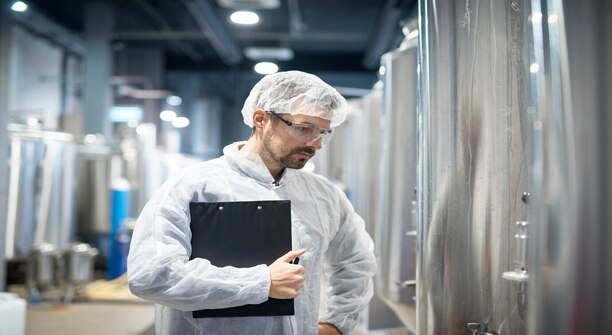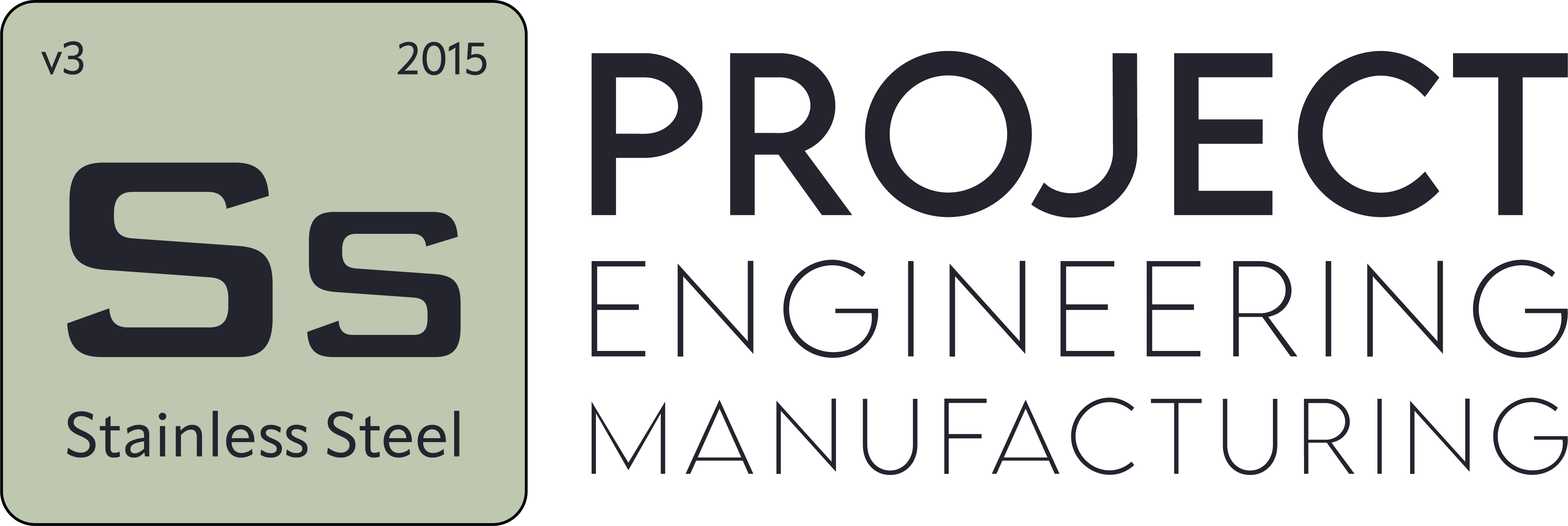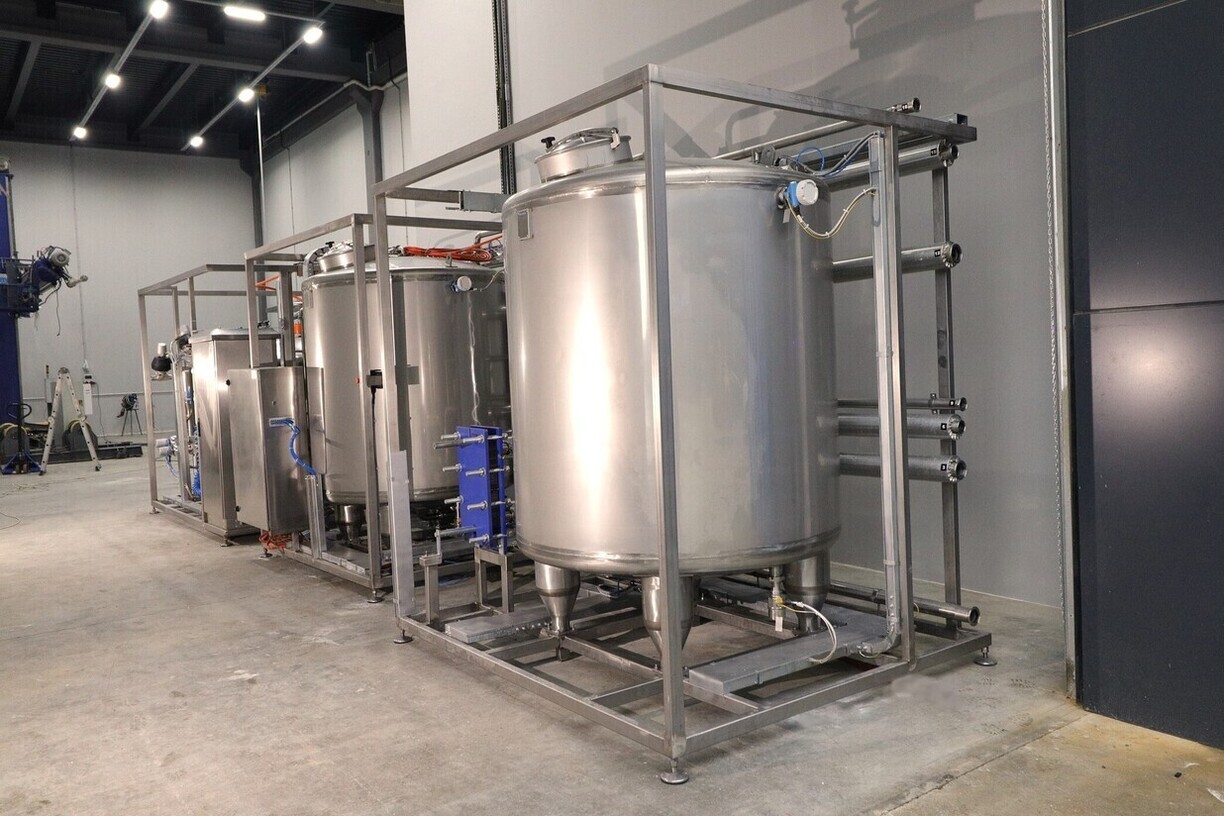Hygienic Tank Manufacturer
- Blog
- Hygienic Tank Manufacturer
Hygienic Tank Manufacturer
Hygienic tanks are a cornerstone of industries where cleanliness and hygiene are critical. From food processing plants to the pharmaceutical sector, these tanks prevent products from becoming contaminated and ensure compliance with strict health standards. The design and production of hygienic tanks prioritize smooth surfaces, corrosion resistance, and the absence of crevices where bacteria could proliferate. With increasing regulatory pressures and consumers’ demands for higher quality, the role of hygienic tanks has significantly grown. These tanks not only prevent contamination but also contribute to the operational efficiency of facilities by adhering to global standards such as FDA and ISO. Furthermore, hygienic tanks are designed to meet the specific needs of various industries, offering a versatile solution for maintaining high cleanliness and safety standards. The introduction of advanced materials and design innovations has further reinforced the importance of these tanks. Modern hygienic tanks are built to offer durability and adaptability, capable of withstanding harsh conditions. From raw material storage to the processing of sensitive substances, these tanks are designed to support a wide range of industrial applications without compromising hygiene. Hygienic tanks stand out with their unique features. They are typically made from high-quality stainless steel, known for its durability and resistance to rust. Their surface finishes are polished to minimize the risk of microbial growth. Additionally, these tanks often incorporate advanced cleaning systems such as CIP (Clean-in-Place), enabling efficient cleaning without disassembling the equipment. Another key point is their customizable designs. Manufacturers offer various sizes and configurations to meet the specific needs of different industries. Additionally, temperature control options and pressure-resistant designs are common enhancements. These features not only ensure the integrity of stored or processed materials but also improve operational efficiency by reducing downtime and maintenance costs. Some tanks also include automated monitoring and control systems that provide real-time data on internal conditions such as temperature, pressure, and cleanliness levels. This integration of smart technology enables businesses to optimize production processes while maintaining strict hygiene standards. Hygienic tanks play a significant role in various sectors: Beyond these sectors, hygienic tanks are also finding applications in emerging fields such as biotechnology and renewable energy. Their ability to maintain sterile environments makes them indispensable in research and development processes. Selecting the right manufacturer is crucial to obtaining reliable and durable hygienic tanks. Here are some factors to consider: Experience: Look for manufacturers with a proven track record in the industry. Their expertise ensures the delivery of high-quality tanks that meet specific industry requirements. Customization: Every industry has unique needs. A good manufacturer will offer tailored solutions, from tank size to advanced features like automated cleaning systems. Compliance: Ensure the manufacturer adheres to international standards such as FDA, ISO, and ASME. Certifications demonstrate a commitment to quality and safety. After-Sales Support: Reliable manufacturers provide comprehensive after-sales services, including maintenance, spare parts, and technical support. This ensures the longevity and efficiency of your investment. Investing in premium hygienic tanks offers numerous advantages. Firstly, it reduces the risk of contamination, protecting product quality and consumer health. Secondly, these tanks minimize downtime thanks to their ease of cleaning and maintenance. Additionally, their robust construction provides longer lifespan, delivering an excellent return on your investment. Advanced features like temperature regulation and automated monitoring further enhance operational efficiency. By investing in high-quality tanks, businesses can maintain strict hygiene standards while achieving higher productivity. The durability of these tanks also reduces the need for frequent replacements, offering a cost-effective choice in the long run. Moreover, the use of hygienic tanks demonstrates a company’s commitment to quality and safety, enhancing its reputation. This can be a significant competitive advantage in markets where consumer trust is paramount. The industry has seen remarkable innovations in recent years. Advanced welding techniques and surface treatments have significantly improved tank durability and cleanliness. Additionally, the integration of smart technologies like IoT sensors enables real-time monitoring of tank conditions and predictive maintenance, reducing operational costs. Eco-friendly materials and energy-efficient designs also reflect a growing emphasis on sustainability in manufacturing practices. Manufacturers are exploring new alloys and coatings that reduce environmental impacts while delivering superior performance. Innovations extend to the design of cleaning systems as well. Modern tanks are equipped with highly efficient CIP systems that use less water and chemicals, ensuring hygiene in alignment with sustainability goals. Proper maintenance is essential to ensure the longevity and efficiency of hygienic tanks. Regular cleaning using CIP systems removes residues and prevents microbial growth. Periodic inspections for wear and tear allow issues to be identified before they escalate, saving time in the long run and money. Additionally, adhering to the manufacturer’s operation and maintenance guidelines ensures optimal performance. Use by trained personnel further reduces the risks of damage or contamination. Maintenance schedules should also include checks on mechanical components, seals, and gasket rubbers. Ensuring these parts are in good condition prevents leaks and contamination, preserving the tank’s functionality. Partnering with a reliable supplier is critical to acquiring top-tier hygienic tanks. Look for companies with a reputation for quality and excellent customer support. Comprehensive after-sales services, including maintenance, spare parts supply, and technical assistance, are equally important. By partnering with a trusted supplier, businesses can ensure the seamless integration of hygienic tanks into their operations, achieving efficiency and compliance. Evaluating supplier reviews, certifications, and past projects can provide valuable insights into their reliability.Why Hygienic Tanks Are Important for Industries?
Key Features of Hygienic Tanks
Applications of Hygienic Tanks in Industries

Factors to Consider When Choosing a Hygienic Tank Manufacturer
Benefits of Investing in Hygienic Tanks
Innovations in Hygienic Tank Manufacturing
How to Maintain Hygienic Tanks
Choosing the Right Supplier


